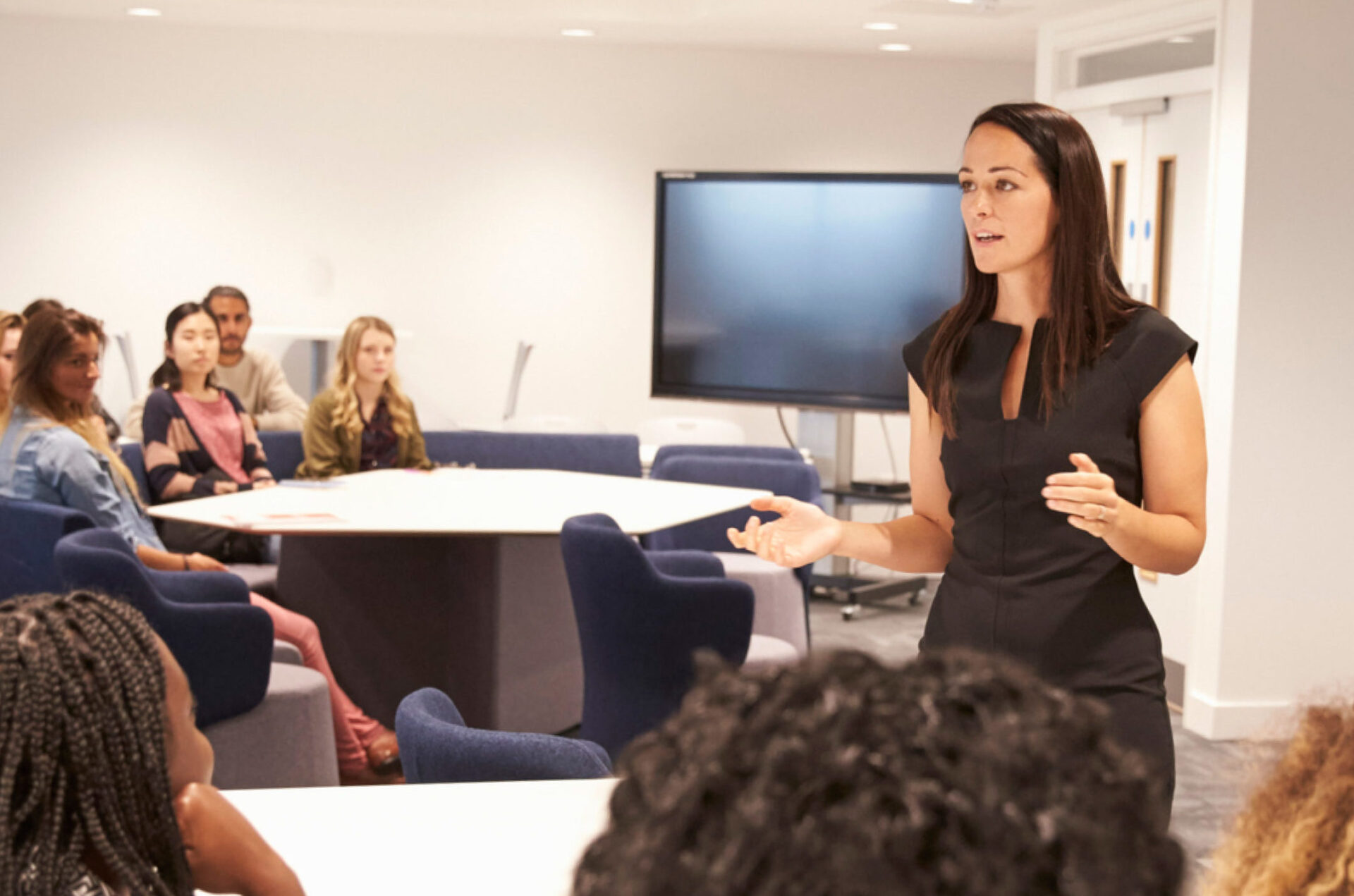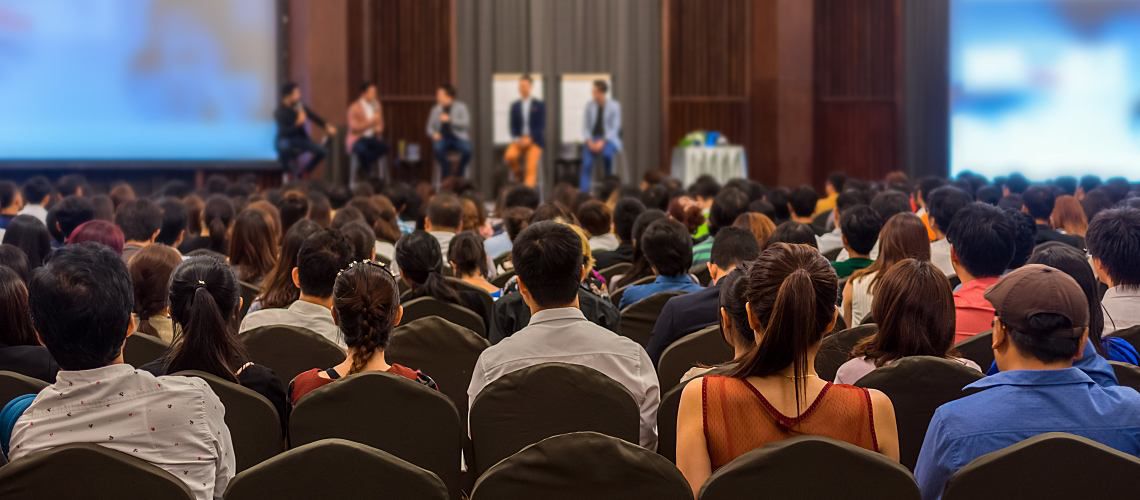Digital vs. Traditional Conferences: Which Format is Right for You?
Digital vs. Traditional Conferences: Which Format is Right for You?
Blog Article
Important Tips for Preparing and Making the Most of Conferences
Participating in meetings can be a crucial possibility for professional development, yet the benefits are commonly contingent on efficient prep work. Comprehending the meeting agenda and setting clear objectives can considerably enhance your experience, while strategic networking can lead to rewarding connections.
Study the Conference Agenda
One of one of the most vital actions in planning for a meeting is to thoroughly investigate the conference program. Understanding the agenda enables attendees to recognize key sessions, workshops, and audio speakers that line up with their professional passions and goals. By examining the routine, individuals can prioritize events that will certainly provide one of the most value and understanding, ensuring a tactical approach to their meeting experience.
In addition to determining relevant sessions, looking into the program allows participants to determine the motifs and trends that will be dealt with throughout the seminar. This understanding can trigger meaningful discussions and networking opportunities with peers and industry leaders. It additionally assists in creating insightful concerns that can boost interaction throughout Q&A sessions.
In addition, familiarity with the schedule can assist in smoother logistics intending, such as managing traveling times in between sessions and making the most of opportunities for informal discussions throughout breaks. Attendees should also consider using devices supplied by the conference organizers, such as mobile applications or on the internet platforms, to remain upgraded on any modifications to the agenda. Comprehensive research ensures that participants are well-prepared to navigate the conference properly, ultimately resulting in a much more enriching and productive experience.
Establish Clear Objectives
Setting clear goals is important for making best use of the worth of attending a meeting. By developing particular goals prior to the occasion, you can concentrate your initiatives on locations that straighten with your specialist desires and interests. Begin by determining what you really hope to attain; this could vary from gaining knowledge in a certain area, uncovering innovative techniques, or discovering prospective partnerships.
Following, prioritize your objectives based on their significance and importance to your present jobs or occupation trajectory. Think about the sessions you intend to attend, the audio speakers you want to listen to, and the subjects that resonate with your goals. Having a well-defined objective will not only enhance your engagement during the conference yet also allow you to assess the event's performance afterward.
In addition, setting measurable objectives can provide you with a structure for examining your development. For example, aim to collect a certain number of understandings or workable takeaways from each session. Ultimately, clear objectives serve as a roadmap, guiding your seminar experience and making certain that you derive significant advantages that prolong beyond the occasion itself.
Network Strategically
Accomplishing your seminar objectives commonly pivots on effective networking. To optimize your connections, approach connecting with intention. Start by identifying vital people or organizations appropriate to your purposes; this might include prospective collaborators, mentors, or industry leaders. Usage social media sites systems, such as LinkedIn, to study guests and start conversations prior to the event. This pre-conference engagement can lead the way for purposeful interactions during the occasion.
During the seminar, be positive. Attend workshops, panels, and social celebrations that line up with your interests, as these setups are ripe for interaction. Keep in mind to listen proactively and ask informative inquiries, which demonstrates genuine interest and look at this now promotes connection. When introducing on your own, be clear and succinct regarding your specialist history and goals to make a memorable perception.
Adhere to up after the conference with tailored messages, sharing gratefulness for the conversation and suggesting future collaboration. Ultimately, tactical networking is about building long lasting partnerships that can support your professional growth and boost your conference experience.
Prepare Your Materials
Organizing and preparing your products well in advancement is vital for a successful meeting experience. Begin by recognizing the crucial documents and resources you will require, such as your presentation slides, handouts, calling card, and any kind of appropriate research products. Conferences. Make sure that all electronic files are saved in quickly available formats and backed up in multiple places, including cloud storage
Next, think about developing a conference folder, either digital or physical, that combines all essential information. This might consist of the conference agenda, a list of vital calls, and notes on workshops or sessions you prepare to participate in. Acquaint yourself with the seminar format and timetable to maximize your time and networking opportunities.
If you are offering, practice your product completely. This will not only boost your confidence but also assist you identify any kind of spaces or locations that need refinement (Conferences). Furthermore, prepare a concise lift pitch about your job or company to facilitate networking

Adhere to Up After the Event
Complying with up after the occasion is crucial for enhancing connections made during the conference. This procedure not only strengthens connections but additionally opens up the door for future partnership and possibilities. Begin by examining business cards and notes collected throughout the seminar to recognize essential contacts and topics of rate of interest.
Send out individualized follow-up emails within a couple of days after the conference, sharing gratefulness for their time and insights shared throughout discussions. Recommendation details discussions to advise them of your communication and strengthen the individual link. If ideal, suggest a follow-up meeting Resources or phone telephone call to discover possible collaborations or share additional info relevant to their passions.
Furthermore, take into consideration connecting on professional networking systems such as LinkedIn, which can promote recurring communication and relationship building. Share relevant write-ups, resources, or insights that may profit your get in touches with, demonstrating your value and involvement in the field.

Final Thought
Finally, effective prep work here and interaction at meetings can dramatically boost professional development. By methodically investigating the agenda, developing clear goals, networking purposefully, and organizing necessary materials, guests can optimize their conference experience. Thorough follow-up after the occasion serves to strengthen links and check out potential cooperations. Applying these approaches promotes an efficient setting for accomplishing private goals and progressing specialist networks within the industry.
One of the most crucial steps in preparing for a meeting is to completely research the meeting program. By evaluating the routine, individuals can focus on events that will use the most value and understanding, guaranteeing a tactical approach to their meeting experience.
Having a well-defined purpose will not only improve your interaction throughout the conference but likewise allow you to examine the occasion's efficiency later.
Inevitably, clear goals serve as a roadmap, assisting your meeting experience and making certain that you derive significant advantages that expand past the occasion itself.

Report this page